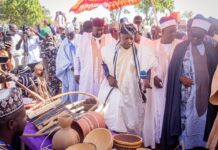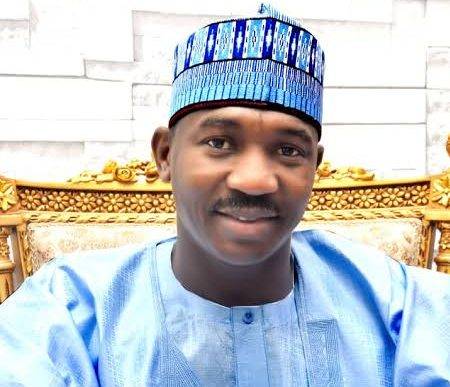 By Shafi’i Muhammad Abdulhamid
By Shafi’i Muhammad Abdulhamid
“It was important to the Glazers that there was no long period of speculation when my retirement became official. They wanted the new man in place within days. With no prospect of a change in my thinking, the discussion turned to who might replace me. There was a unanimous agreement – David Moyes was the man.” – Sir Alex Ferguson
Sir Alex Ferguson had maintained that this autobiography was an account for the Manchester United supporters. Those who had remained faithful and dedicated to the club, and were owed an explanation of the gaps remaining in his 27 years reign as a manager in the club. After reading this book, I found this was absolutely so. It looks like a conversation from the grandpa giving you a straight-talk about how he managed his life, with all the blunders of judgments. Then his determination to maintain a very high standard and understanding early, that no man is greater than the club. It was a story of success. But to me, the most intriguing part of this autobiography was his confrontation with his fearless captain Roy Kean that led to the latter leaving the club!
Before reading this book, I had a million questions which I wish to have the opportunity to ask Fergie, but now I was left with just a handful. One of the questions that continued to baffle my mind even after reading this book was his decision to choose David Moyes as a successor out of all the wonderful football managers in the world. I read through the whole book, and the old man did not give any strong footballing reason for that decision. Fergie’s only reason was that Moyes was a Scottish and Scots have a dourness of strong will to be successful. He strengthens this point by saying Moyes’s father was also a good coach back in the days at Drumchapel, and he believes he has some of these traits in him. The only statement I read that was close to being a footballing reason for this selection was when he said – Moyes was a fine judge of talent and laid on some marvelous football at Everton when he was allowed to sign a higher class of player. All these to me are ridiculous reasons, because United has a winning mentality which either David Moyes did not understand or he is not capable of sustaining. And again, Fergie should know better that there is a big difference between winning mentality and playing a marvelous football; a case study of Arsenal. I am not of the opinion that United should hire an established coach as the Mourinhos, the Van Gaals or the Capellos, because I want the tradition of the club to be upheld. I still find it difficult to understand why Fergie did not pick amoung the players or ex-players he nurtured. Players that passed through the never say die school of Fergie time. Players that understood the winning mentality and the tradition of United and will do anything possible to upheld that. Prominent amoung these players and ex-players are; some of the class of 92 like Ryan Giggs, Paul Schools or the Nevilles. I will also be more comfortable with the baby-face of Ole Gunnar Solskjær or the mighty figure of Eric Cantona. What is wrong in choosing our longest serving captain Bryan Robson or our former center back Steve Bruce? Now, this decision of choosing Moyes is putting the team through torture and the fans through hell.
For many of us that have been very faithful in supporting the club over a long time, we find it difficult to easily forget the untimely departure of our fearless captain, Roy Keane. This is the beginning of our mid-field crises that are yet to be resolved. Keano as he was popularly known was a highly opinionated personality. He always thinks he is right even when he was wrong, and that was what made Mick McCarthy (the Republic of Ireland Manager) to send him out of the 2002 World Cup at Japan/Korea camp. During that trying period, Fergie supported Keano even when he knew he was wrong. But if you are looking for an example of how a player and his coach fell apart, then the saga of Ferguson versus Roy Keane is a classical case. Their problem stated when Fergie supported Carlos Queiroz (the assistant coach) after he had some misunderstandings with Keano over accommodation arrangements during pre-season tour at Portugal. After he came back to England, Keano took on to MUTV and seriously criticized most of his team-mates for not putting their weight during matches. It was so serious that the editors refused to air it and sent the tape to Fergie for his assessment. The old man was dumfounded! He could not believe Keano will let down his team-mates in the public. The following morning, he called for a meeting of all the players and coaching staff. He played the video for them to see. Keano was quick to ask whether the players had a problem with what they had just seen. Edwin van der Sar and Ruud Van Nestrooy took on him, but the hardest part of Keano’s body was his mouth. So, he uses his blade tongue to slaughter everybody and then saved the best for the old man when he said ‘You brought your private life into the club with your argument with Magnier,’ At that point the players started leaving. It was a shameful ending because, by morning, our legend was on his way out of Old Trafford. No player is bigger than the club.
Keane was right to have made that pronouncement to Fergie. In short, he had said the minds of many fans out there that will never have the opportunity to tell the old man the truth. But the problem was that; he also went about it the wrong way and at the wrong time. The story of Magnier and the racehorse called Rock of Gibraltar was another thing that the book refused to expatiate on, and I think it was intentional. Magnier was a former Manchester United co-owner from Ireland. Magnier and Ferguson also co-owned the racehorse that won many races. The row that blew up over the successful horse and Ferguson’s claim on the stud rights, consumed the club from Ferguson’s first legal action in January 2003 to the legal settlement in March 2004 and beyond to the Glazer takeover in May 2005. McManus and Magnier owned almost 30 per cent of the club and eventually sold out to the current owner, the Glazers. The fans did not like it when the Glazers came from America and took over the club. And it was this racehorse thing that caused it. Fergie liked it that way because they gave him more power and also increased his salary. How can an important story like this that consumed the former owners of the club be conspicuously omitted from this all important autobiography? If you are a fan of Keano or David Beckham then you may not enjoy the book, because they were portrayed in a bad light.
But one thing that I like so much in the book was honesty in narration especially when it comes to stating the obvious. For example, in the 19th chapter titled – Small is Beautiful, he made the following statement;
“BARCELONA were the best team ever to line up against my Manchester United sides. Easily the best. They brought the right mentality to the contest. We had midfield players in our country – Patrick Vieira, Roy Keane, Bryan Robson – who were strong men, warriors; winners. At Barcelona they had these wonderful mites, 5 feet 6 inches tall, with the courage of lions, to take the ball all the time and never allow themselves to be bullied. The accomplishments of Lionel Messi, Xavi and Andrés Iniesta were amazing to me.”
I remembered the old man’s hand shaking terribly in that UEFA Champions League final at Wembley stadium against Barcelona in 2011. I was even scared he might get a heart attack, especially when he spits out that his iconic chewing gum. But when he spoke about his strikers, this is what he has to say;
“If you put my great goal-scorers together (Andy Cole, Eric Cantona, Van Nistelrooy, Rooney), Ruud was the most prolific. But the best natural finisher was Solskjaer. Van Nistelrooy scored some magnificent goals, but many were scabby, six-yard box goals. Andy Cole scored some fine goals, too, but plenty were close in, scrambled, off the leg, just-get-it-in goals. Solskjaer’s finishing, though, could be majestic. His thought processes underpinned his skills. He had that analytical mind. As soon as he arrived in a shooting position, he had it all sized up. He had mental pictures everywhere. Yet he didn’t play all the time because he wasn’t the most aggressive of strikers.” Surely, I all watched them played, and I cannot agree more. Simply put. Fergie had worked with many world class strikers including Henrik Larsson (Sweden), Robin van Persie (Holland), Michael Owen and Teddy Sheringham (both of England). But, unfortunately, in this case his call was right. No space for the Uruguayan and two-time winner of both the Pichichi Trophy and the European Golden Shoe Diego Forlán talk less of Chicharito Hernández of Mexico.
He also picked that Wayne Rooney’s bicycle kick against Man City in February 2011 as the greatest goal in his time at United. When he was invited to Everton academy for the first time to watch Rooney play, his remark was, “This was a man playing in under-age football.” Rooney was portrayed in this book as a greedy fellow that owes the United fans an apology because twice he puts up transfer request. But, he praised Cristiano Ronaldo as the most gifted player that he had worked with as a manager.
One last question which the book did not address was this popular allegation especially in Africa that Ferguson does not like black players of African origin. Whether the allegation was true or not, only two black African players featured in his 27 years reign in Manchester United; Quinton Fortune (South Africa) and Eric Djemba-Djemba (Cameroon). These two only struggled to make the first team for some time and then fade away. His attempt to get a Nigerian player, John Mikel Obi, ended in controversy. I wish he uses this opportunity to clarify this unfounded racist allegation against him. He missed it. But, one thing that you cannot take away from the grandpa was his achievements. He played four UEFA Champions League finals and won two. He won the old European Cup Winners’ Cup in 1991. He also won the Premier League 13 times and then played in eight FA Cup finals and won five. Played seven League Cup finals and won four. He also won the Intercontinental Cup and the European Super Cup in 1999, and the FIFA World Club Cup in 2008. Not forgetting the ten Charity Shield Cups in his cabinet. Sir Alex Ferguson is the most decorated Premier League manager ever. All hail the King of soccer. It’s Fergie time.
United we stand.
Shafi’i Muhammad Abdulhamid wrote-in from the Universiti Teknologi Malaysia.
Twitter: @shafzon
FaceBook: Shafi’i Abdulhamid
DISCLAIMER: This is NOT a literary review. Instead, it is a review of major events in the book from the eyes of a fan.



